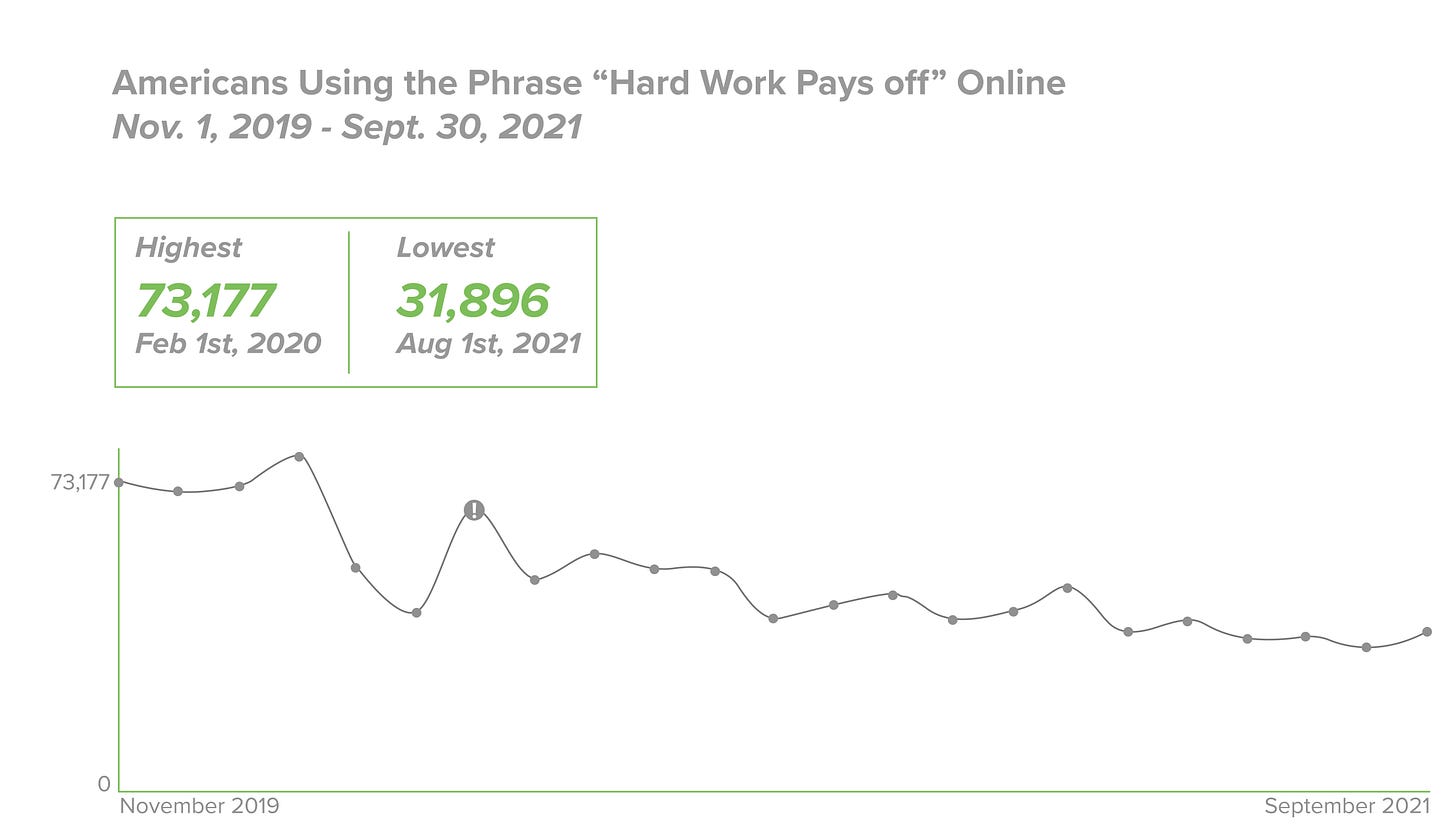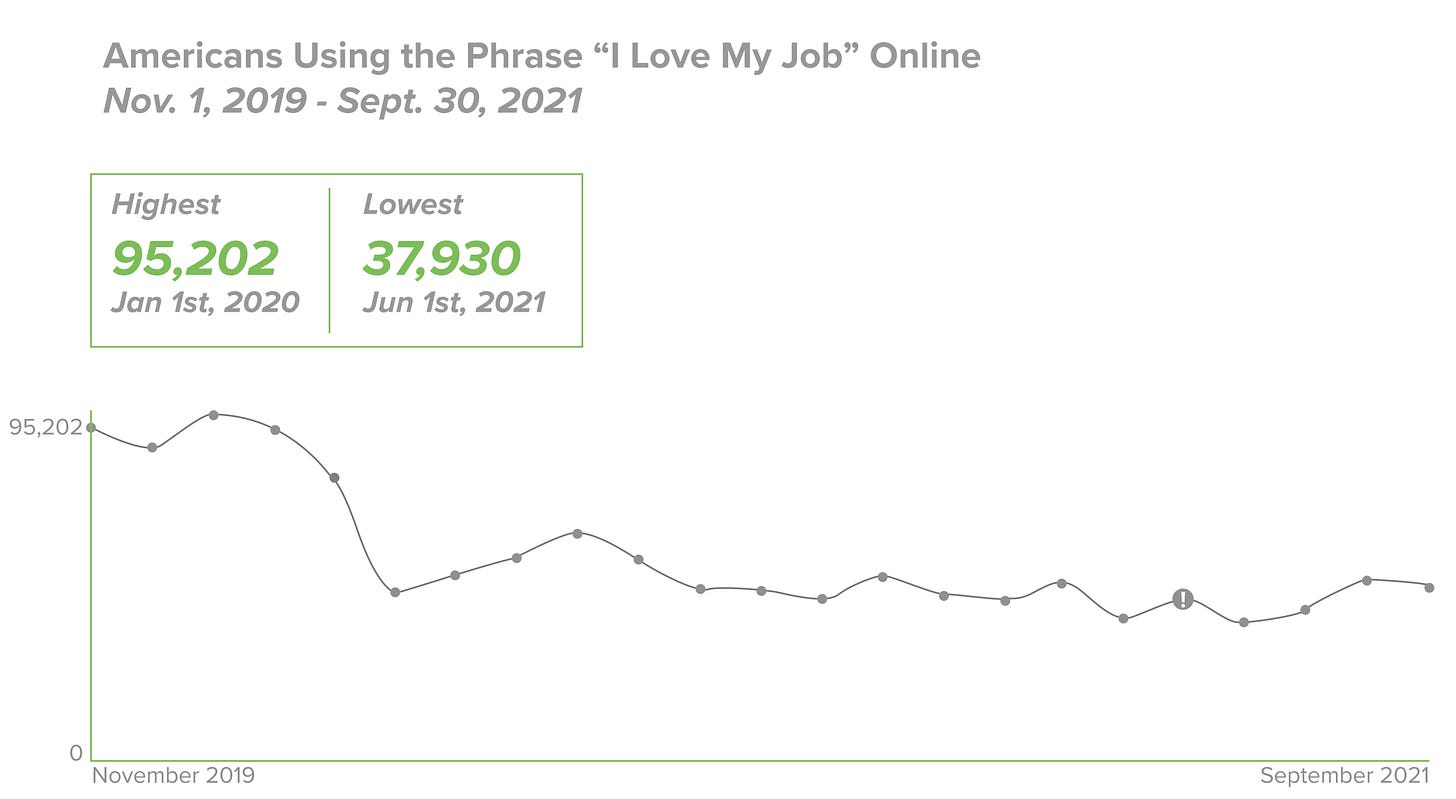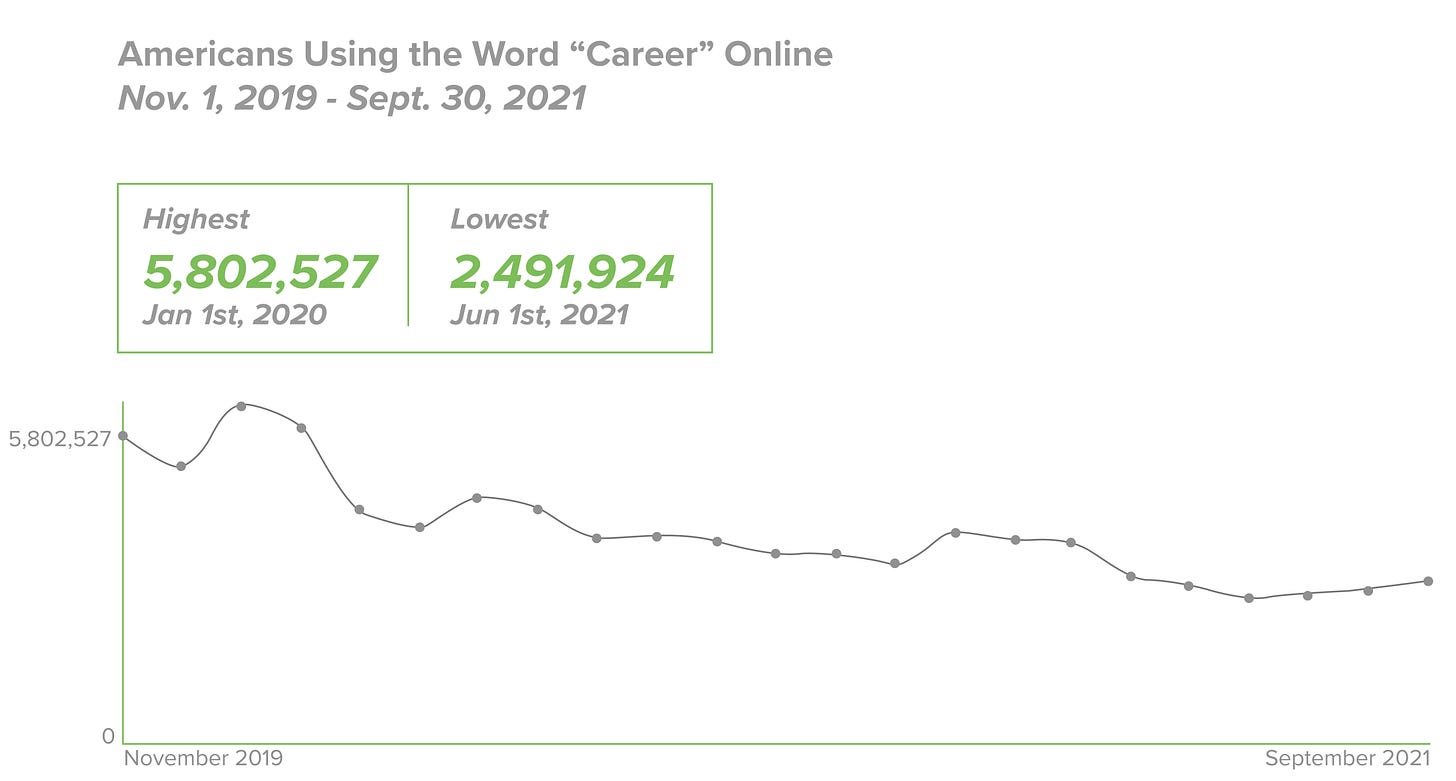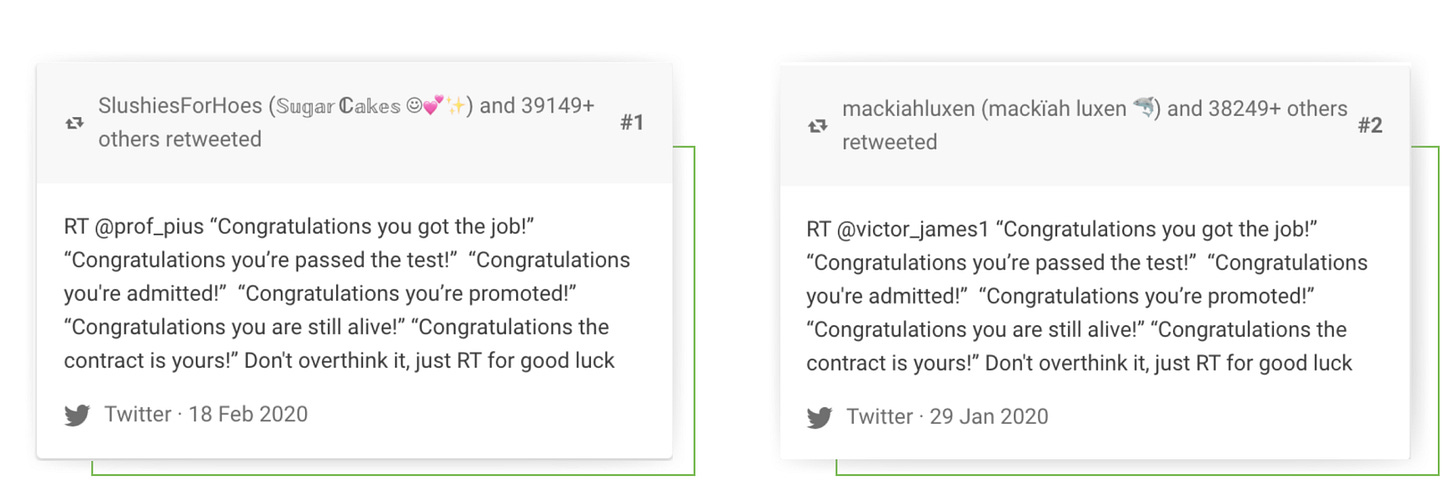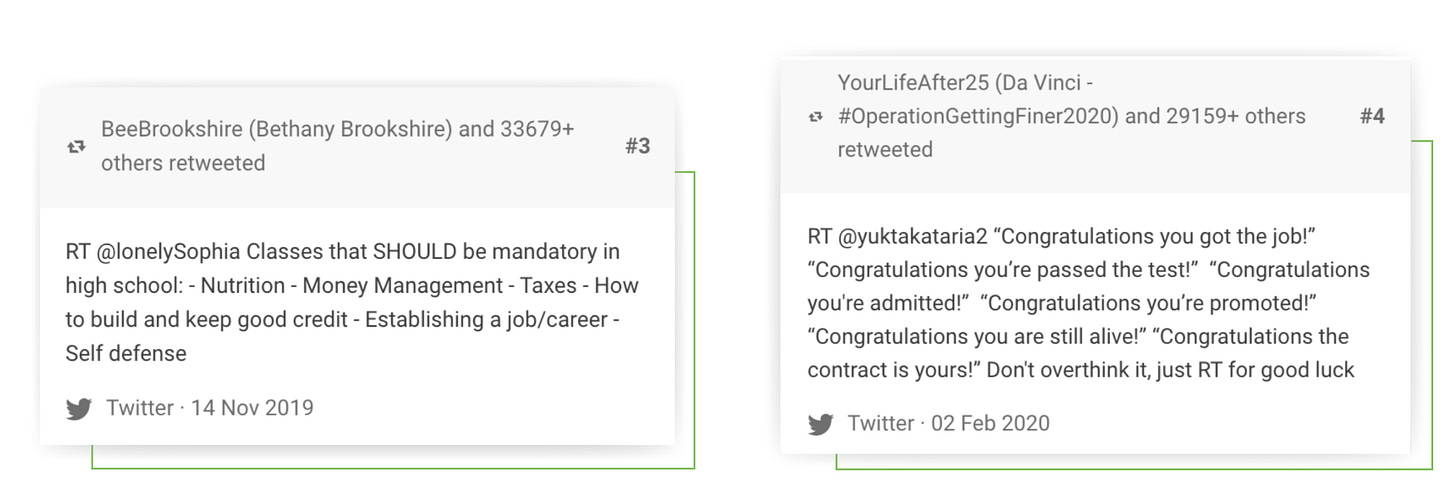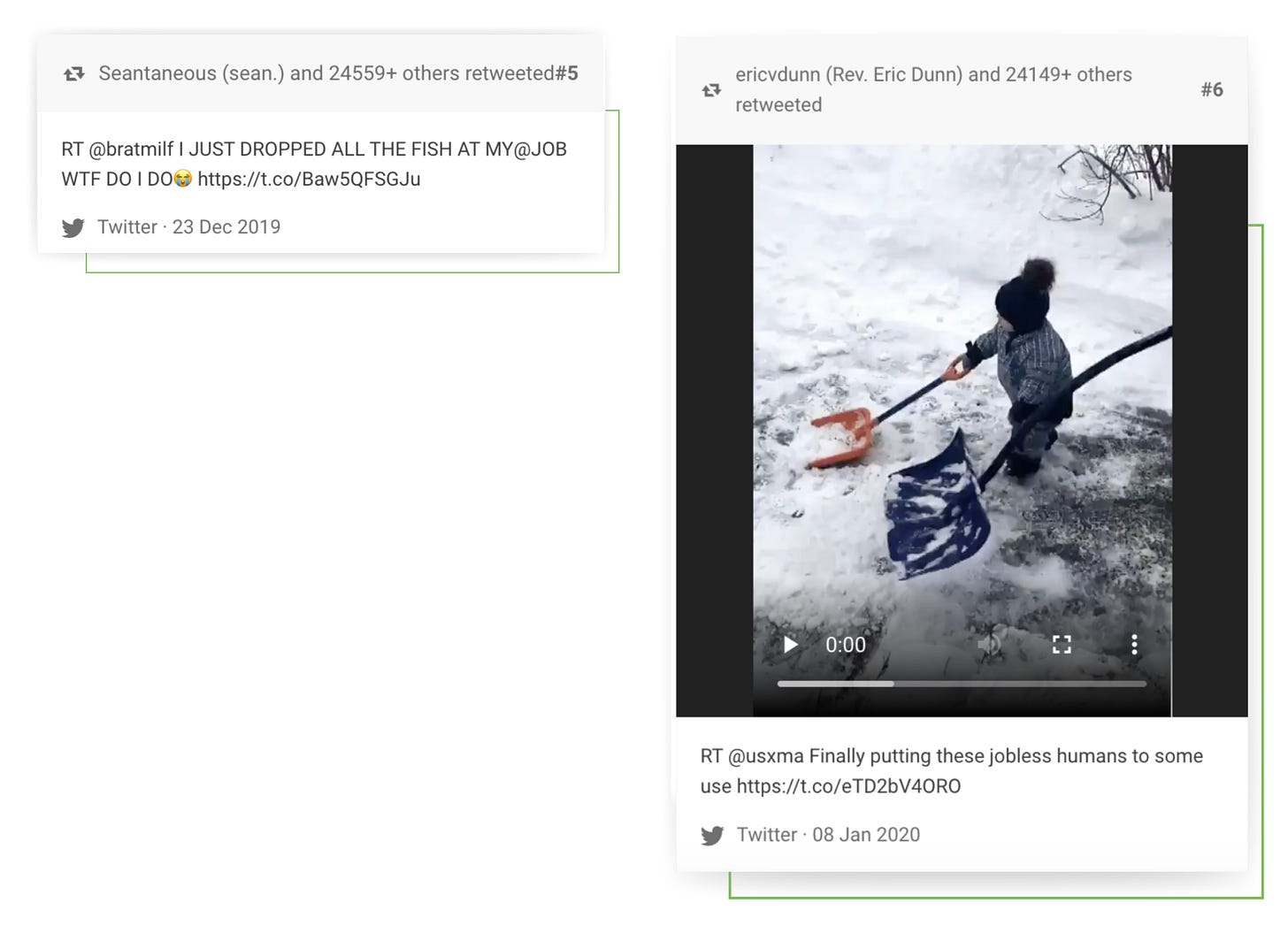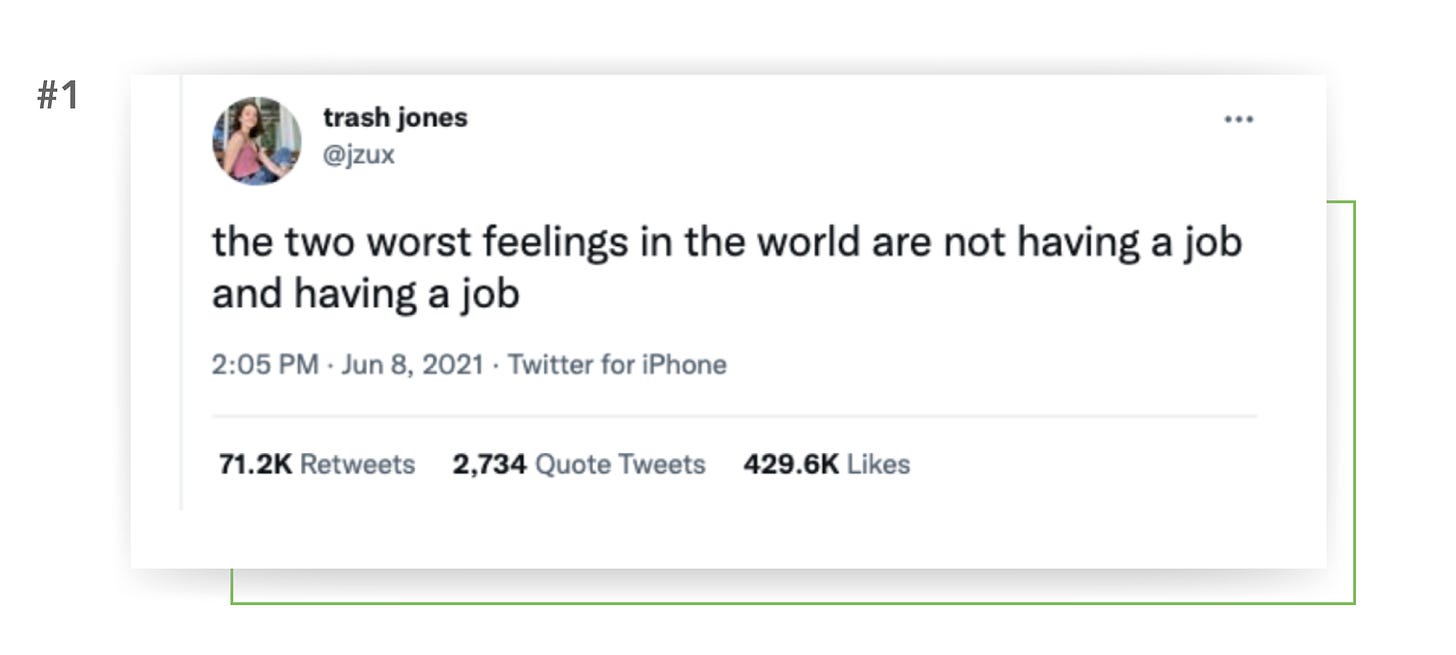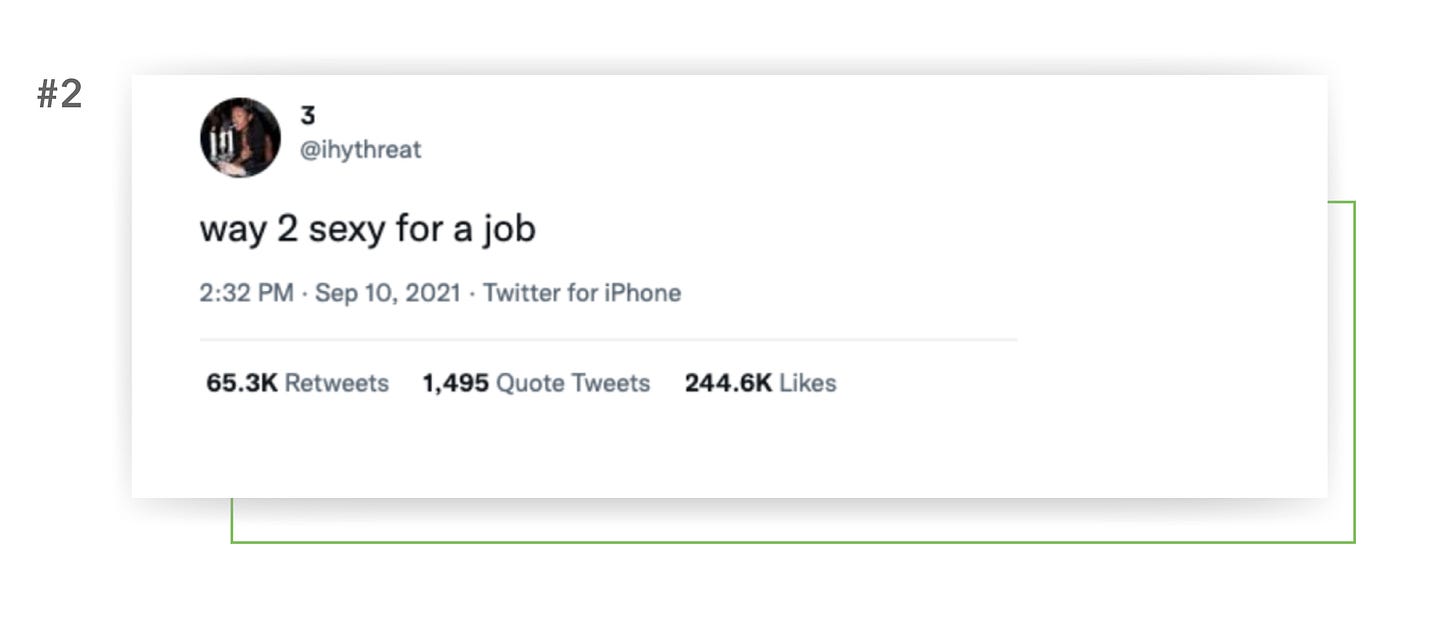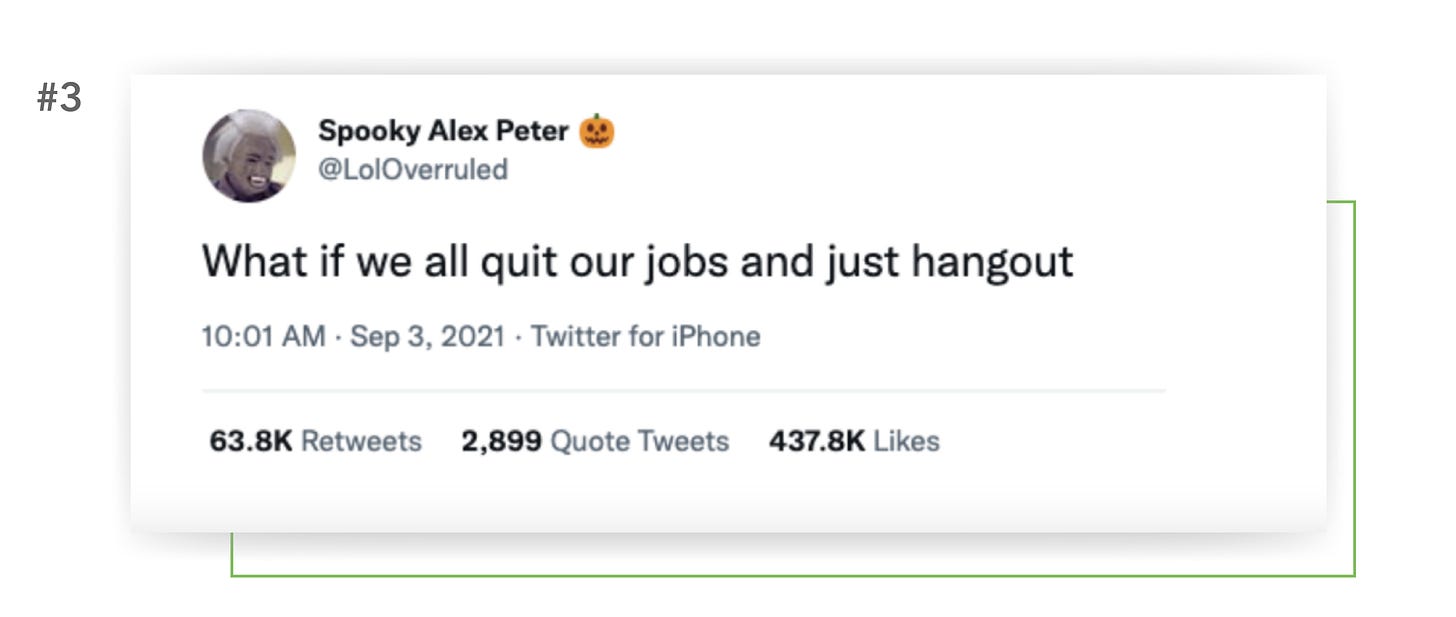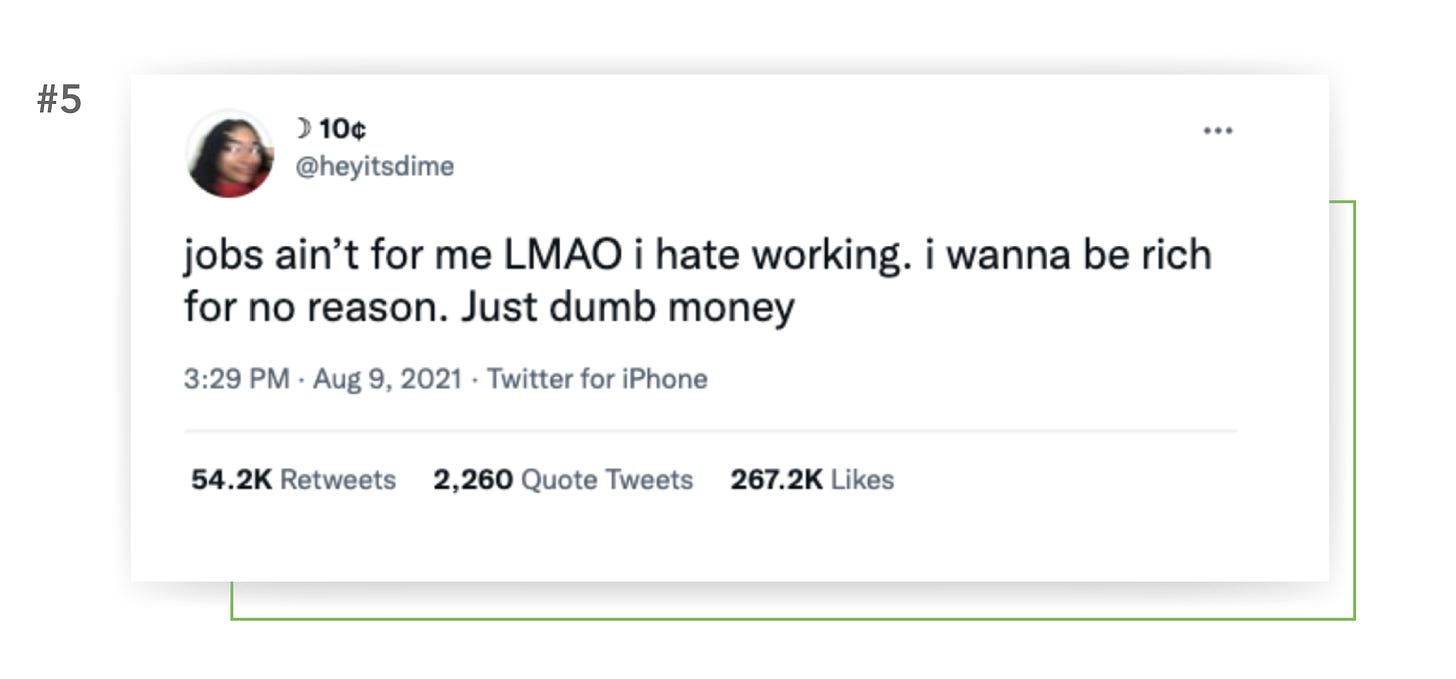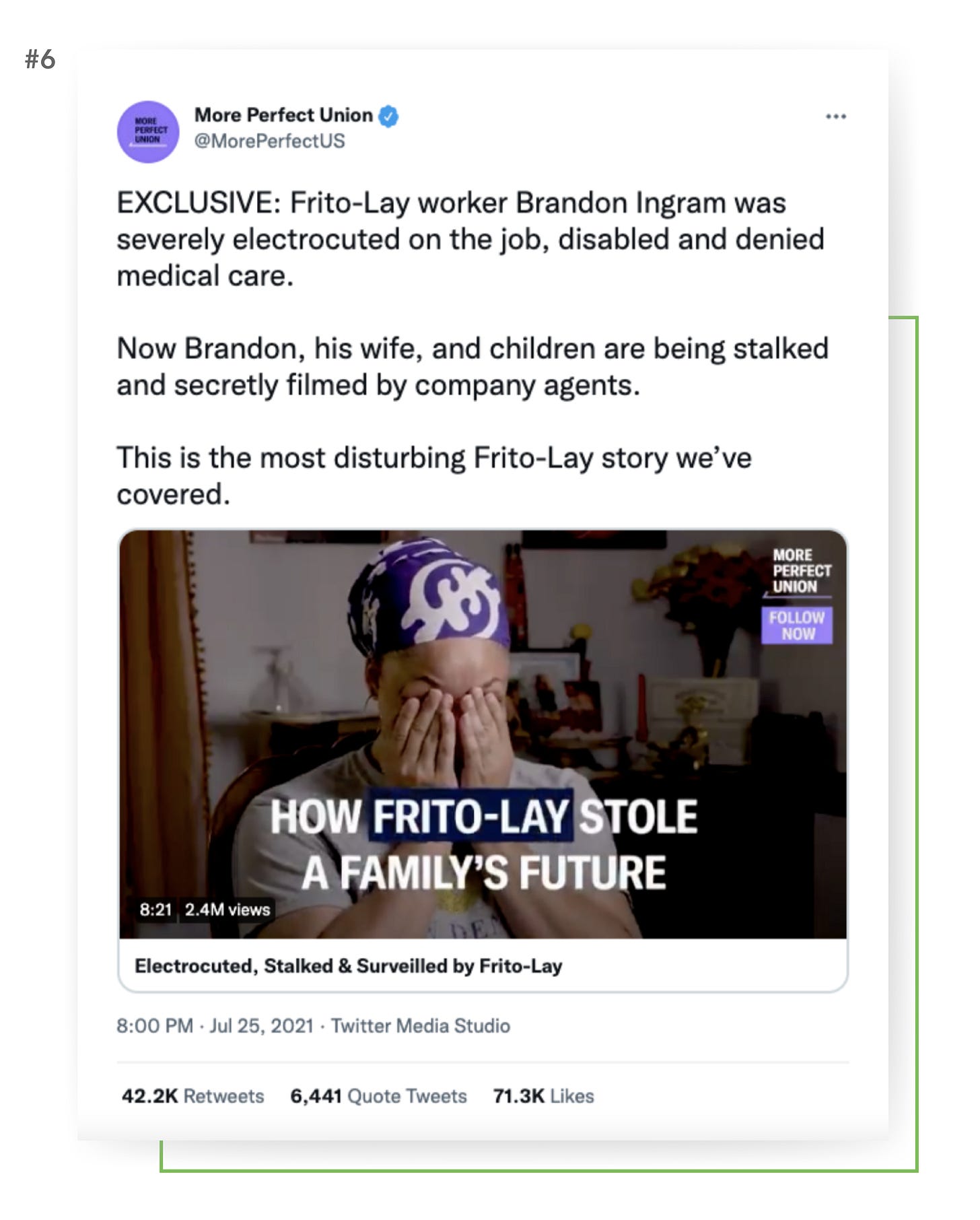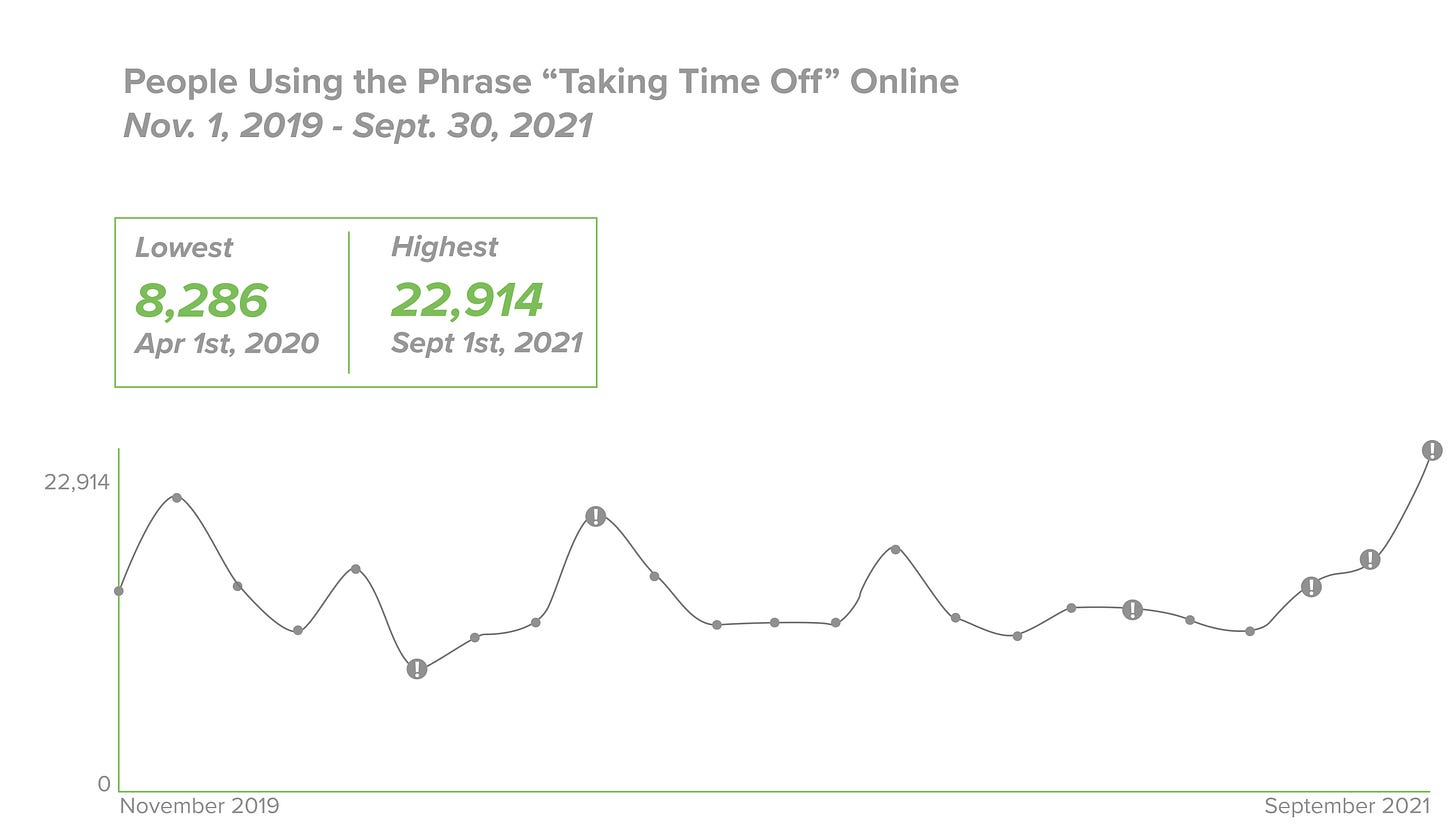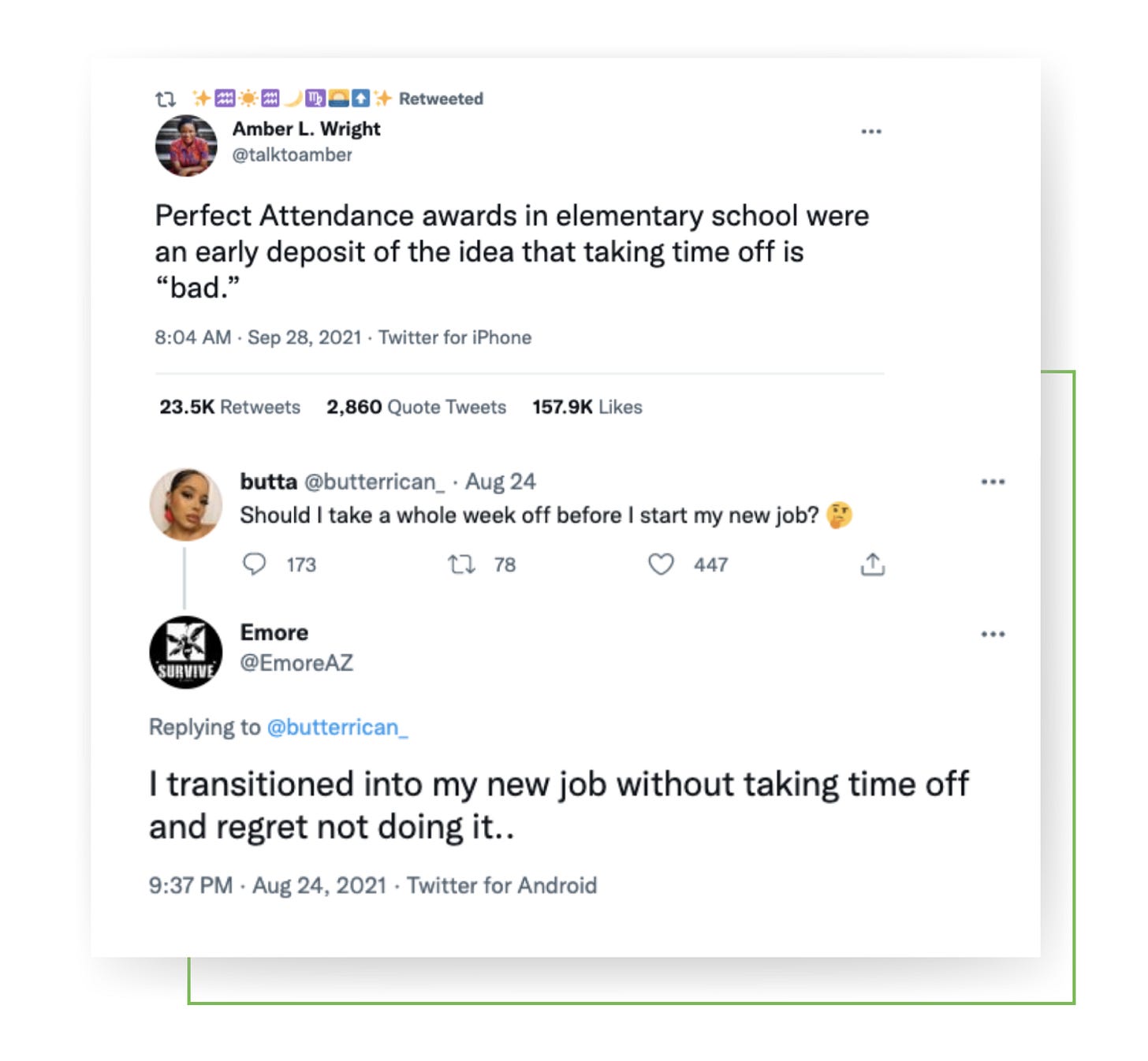Polls Say the Economy is the Top Issue, But Promising More Jobs Won’t Resonate. Here’s What Will.
We looked at over 4.3 million online messages to understand how to connect with voters when talking about jobs.
Welcome To What The Polls Don’t Tell Us! You’re receiving this biweekly newsletter because you have worked with Main Street One in the past, or you have asked to be added to our distribution list. Subscribe here. Learn more about Main Street One’s work here.
BIG TAKEAWAY: Post-pandemic Americans are far less likely to identify with their jobs as a central part of who they are. What they want is work that gives them more freedom.
The number of Americans using the word “career” or the phrase “hard work pays off” online is less than half of what it was pre-pandemic.
The number of Americans using the phrase “I love my job” online is less than a third of what it was pre-pandemic.
Most-shared posts about jobs before the pandemic were celebrating “hustle culture,” but post-pandemic, the top posts mock the idea of work itself.
SLEEPER TAKEAWAY: The most important workplace freedom that Americans talk about online is the ability to take time off.
Democrats since the Clinton years have run on a relatively simple economic message - more jobs. Here’s Dick Gephardt campaigning for President in Iowa on January 16, 2004: "My dad was a Teamster truck driver. I'm going to have three goals as president: jobs, jobs, jobs."
But 9 months into the Biden presidency, Democrats are failing to connect on economic issues, according to an Oct. 6 Gallup poll:
And an Oct. 13 Politico/Morning Consult Poll finds that the economy is the top concern right now for voters, with 36% of respondents naming “Economic issues” as the most important, followed by “Security issues” at 19%.
Does this mean that Americans are coming around to Republican supply-side arguments about cutting taxes for corporations and wealthy people? Probably not - Republican economic policies are still quite unpopular. But if Democrats keep using the language of the Clinton years and making “jobs” the be-all end-all of economic policy, Americans will probably tune out. The pandemic has changed the way people think about work, and Democrats can win if they connect with voters where they are today - not where they were in the 1990s.
For instance - the idea of hard work leading to success has been a bedrock American belief for centuries - it’s one of the basic tenets of the social contract in American society.
The pandemic seems to have shaken--if not permanently damaged--that core belief. Here’s how American attitudes toward the benefits of hard work have changed:
Americans are less than half as likely to use that phrase post-pandemic than pre-pandemic.
And here is “I love my job” - the chart looks almost exactly the same.
Even the very notion of a “career” - a word that has overtones of identity beyond merely paying the bills - is spoken of less than half as often as it was pre-pandemic:
More and more, Americans are coming to the conclusion that their job and their life are separate. A snapshot of the most-shared online posts about jobs is even more efficient at illustrating the change - here are the top posts referencing jobs in the 4 months before the pandemic upended society:
Top 6 shared posts about jobs - USA
Nov. 1, 2019 - Feb 29, 2020
(Note: most of these posts are from accounts that no longer exist, but are still captured in our dataset, so the visuals are from our social listening tools and not the native platform.)
3 of the top 6 posts are actually reposts of the same message, which you can think of as one mega-post - and this message unapologetically celebrates the idea of using willpower to get the job and life that you’re seeking. Every post except #5 - an humorous outlier - is buying into the idea that work is necessary, important, and (this is the key here) life-improving.
Now, here are the top 6 posts about jobs in the 4 months after the economy started to fully reopen:
Top 6 shared posts about jobs - USA
June 1, 2021 - Sept. 30 2021
(Since these posts are much more current, they are being displayed on their native platform.)
Gone is the idea that a job will make your life better. In fact, the narrative is practically the opposite - 5 of the top 6 posts about jobs mock the very idea of jobs as being meaningful, and the 6th is about a worker being abused by his employer.
So what do Americans want from the workplace? In a word, freedom. Specifically, the freedom to take time for themselves that isn’t owned by the workplace. Here is a chart of people using the phrase “taking time off” online from pre-pandemic through Sept. 30 of this year:
It was already a popular idea before the pandemic began, but in the last few months the phrase has been surging online - now that many have returned to work, they are finding that they can’t wait to leave.
Bottom line: Democrats need to get rid of pre-pandemic “job creation” language. What Americans want more than ever is for their job to not dominate their lives. Democrats are already pursuing a number of policies, such as paid leave, that begin to renegotiate the social contract - they should use language that does the same. According to the data, they should ditch talk about the number of jobs they have created or will create, and instead talk about an economy that gives workers more freedom - especially the freedom to take time for themselves.





